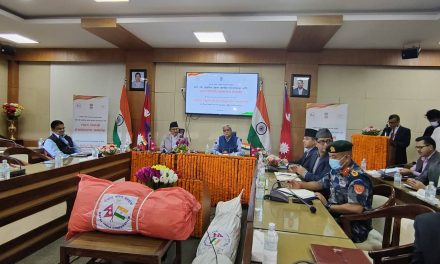– Durga Chudal
Business organizations are regarded as long term entity itself because we human being are mortal where business organizations are immortal. Business ethics means appropriate business policies and practices regarding potentially controversial subjects including corporate governance, insider trading, bribery, discrimination, corporate social responsibility, and fiduciary responsibilities. The law often guides business ethics, but at other times business ethics provide a basic guideline that businesses can choose to follow to gain public approval.
Nepal is known as least developed country as compared to other giant economies in international level. Hello! Nepalese Business organization, How are you? Until and unless following guidelines are not followed by the business organization in Nepal, they fail to achieve their own personal objectives.
Honesty: Employees are regarded as a pillar of the business organizations; they should be strong in terms of education, experience and other managerial skills which are required for the successful operation of the business. Ethical executives are honest and truthful in all their dealings to the customers, management, suppliers and other stakeholders and they do not deliberately mislead or deceive others by misrepresentations, overstatements, partial truths, selective omissions, or any other means. So think yourself, either you are employing such kind of employee or not?
Integrity: Your employee must be matched with the mission and goals of your business where ethical executives demonstrate personal integrity and the courage of their convictions by doing what they think is right even when there is great pressure to do otherwise; they are principled, honorable and upright; they will fight for their beliefs. They will not sacrifice principle for expediency, be hypocritical, or unscrupulous. Have you ever made an analysis of job and job design in your business organization in Nepal?
Promise-keeping & trustworthiness: Ethical executives are worthy of trust towards the stakeholders of business organization. They are sincere and forthcoming in supplying relevant information and correcting misapprehensions of fact, and they make every reasonable effort to fulfill the letter and spirit of their promises and commitments. They do not interpret agreements in an unreasonably technical or legalistic manner in order to rationalize non-compliance or create justifications for escaping their commitments. Can you think that your employees in Nepalese business organizations in Nepal are performing as you promise in your mission statement?
Loyalty: Ethical executives are worthy of trust, demonstrate fidelity and loyalty to persons and institutions by friendship in adversity, support and devotion to duty; they do not use or disclose information learned in confidence for personal advantage. They safeguard the ability to make independent professional judgments by scrupulously avoiding undue influences and conflicts of interest. They are loyal to their companies and colleagues and if they decide to accept other employment, they provide reasonable notice, respect the proprietary information of their former employer, and refuse to engage in any activities that take undue advantage of their previous positions. So have your employee ever performed as per the
Fairness: Ethical executives and fair and just in all dealings; they do not exercise power arbitrarily, and do not use overreaching nor indecent means to gain or maintain any advantage nor take undue advantage of another’s mistakes or difficulties. Fair persons manifest a commitment to justice, the equal treatment of individuals, tolerance for and acceptance of diversity, the they are open-minded; they are willing to admit they are wrong and, where appropriate, change their positions and beliefs.
Concern for Others: Ethical executives are caring, compassionate, benevolent and kind; they like the Golden Rule, help that in need, and seek to accomplish their business objectives in a manner that causes the least harm and the greatest positive good.
Respect For Others: Ethical executives demonstrate respect for the human dignity, autonomy, privacy, rights, and interests of all those who have a stake in their decisions; they are courteous and treat all people with equal respect and dignity regardless of sex, race or national origin.
Law abiding: Ethical executives abide by laws, rules and regulations relating to their business activities.
Commitment to excellence: Ethical executives pursue excellence in performing their duties, are well informed and prepared, and constantly endeavor to increase their proficiency in all areas of responsibility.
Leadership: Ethical executives are conscious of the responsibilities and opportunities of their position of leadership and seek to be positive ethical role models by their own conduct and by helping to create an environment in which principled reasoning and ethical decision making are highly prized.
Reputation and Morale: Ethical executives seek to protect and build the company’s good reputation and the morale of its employees by engaging in no conduct that might undermine respect and by taking whatever actions are necessary to correct or prevent inappropriate conduct of others.
Accountability: Ethical executives acknowledge and accept personal accountability for the ethical quality of their decisions and omissions to themselves, their colleagues, their companies, and their communities.
So every business organizations in Nepal, if they able to imply above mention terms and condition, success is not so far but not dreams of sustainability, it remains as dream only!
(Writer is Senior Sales Manager of Maruti Cement Limited)





